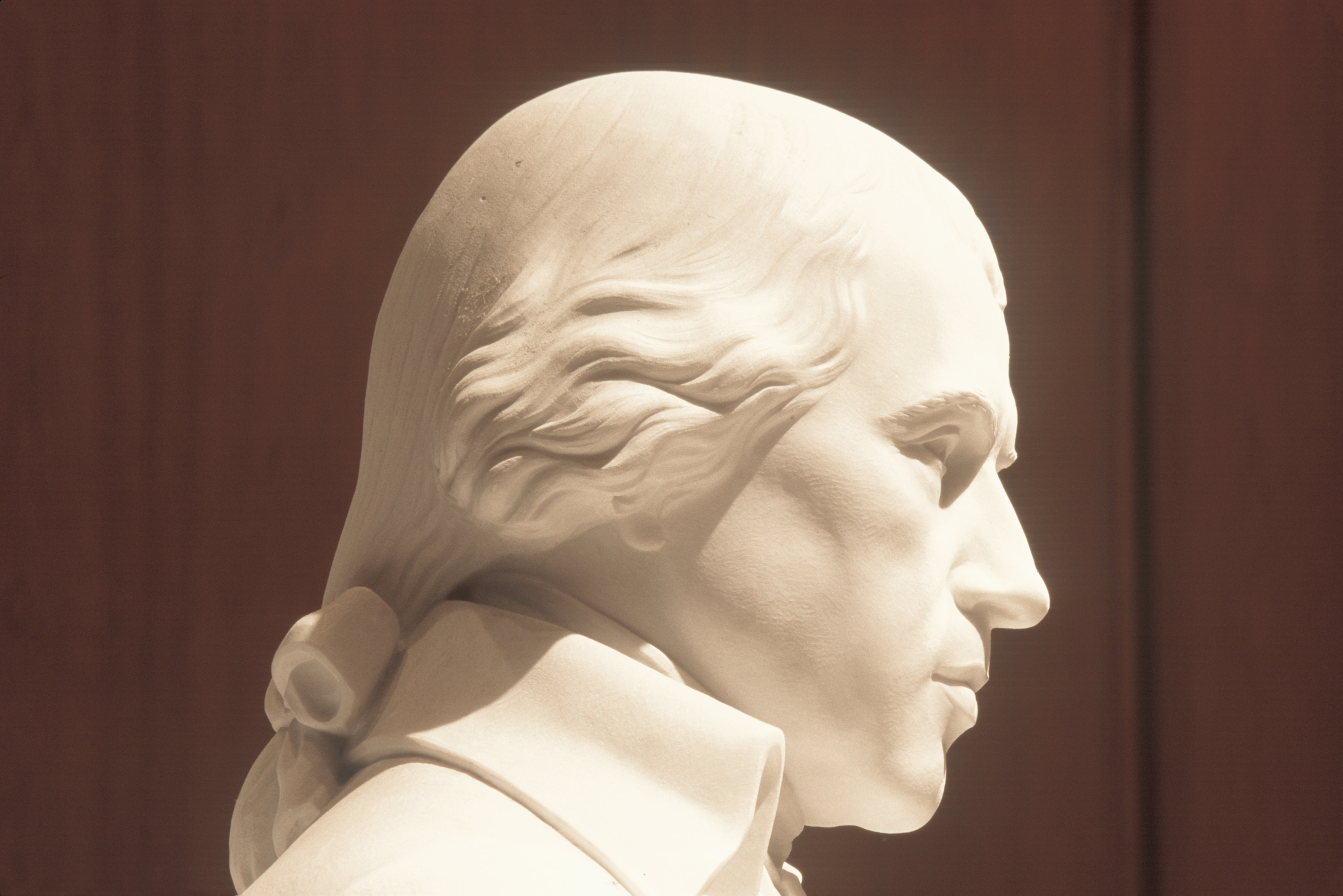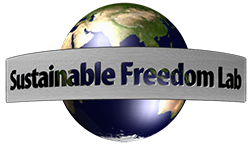
24 Jan Those Who Want Your Property Aren’t Just Talking About Your House
John Anthony
Our Founders knew that property meant more than homes and land. Today’s establishment elites know that too. But they are less concerned with protecting what is yours than making it theirs.
From the government’s extending the pandemic eviction moratoriums leaving landlords with little way to pay their mortgages, to expanding the navigable Waters of the United States (WOTUS) placing private properties at risk of devaluation, Americans’ properties are under relentless waves of federal and state attacks.
*Note that both of the mentioned actions were in defiance of SCOTUS rulings.
In December 2022 the SEC attempted to form an investment vehicle establishing Natural Asset Companies handing those firms management authority over private land without the landowner’s permission. In 2023, the rule was suspended in response to a massive rejection by states financial officers and citizens. Expect it to return with an even more innocuous and disarming title like, Community Stakeholder’s Reinvestment Act.
As our homes and land are vulnerable to outside controls, so too our access to their internal value is at risk.
What differentiates 1st world nations from others is our ability to leverage our assets. As Hernando DeSoto says in his book, The Mystery of Capital,
“property is not the house [or land] but an economic concept about the house embodied in a legal representation.”
Legal ownership representations such as a deed or title enable you to borrow against your home to make value-enhancing renovations or to use the money to invest in a business that may generate more income.
President Biden’s fast-tracked central bank digital currency (CBDC) is a digital gatekeeper and tracking device that approves all financial transactions, and can disintermediate banking relations in the loan process. When your bank says “yes,” the government can say “no.”
More than the obvious property such as land and homes are targeted. We forget that our thoughts and ideas are also our property.
Article 1 Section 8 the Constitution authorized Congress to secure patents and copyrights.
“To promote the Progress of Science and useful Arts, by securing for limited Times to Authors and Inventors the exclusive Right to their respective Writings and Discoveries…”
The Constitution’s 1st Amendment protects free speech.
“Congress shall make no law respecting an establishment of religion, or prohibiting the free exercise thereof; or abridging the freedom of speech, or of the press; or the right of the people peaceably to assemble, and to petition the government for a redress of grievances.”
Yet professionals face legal threats, decertification, and loss of licenses to practice for promoting ideas and writings that counter national narratives.
Civil asset forfeiture confiscates personal wealth and belongings, and censorship that clips freedom of expression,
Justice Sanders of the Washington Supreme Court, said:
“The substantial value of property lies in its use. If the right of use be denied, the value of the property is annihilated and ownership is rendered a barren right.”
Yet that right is use is constantly under attack in the name of protecting our health and welfare.
Section 24220, Advanced Impaired Driver Technology is buried inside the Inflation Reduction Act. The law requires future autos to contain equipment that measures the blood alcohol concentration of the driver and if above the legal level, disable the vehicle. Fact checkers note this is not a “kill switch”.
From Section 24220:
“passively monitor the performance of a driver of a motor vehicle to accurately identify whether that driver may be impaired and prevent or limit motor vehicle operation if impairment is detected.”
Obviously the intent is to prevent drunk driver deaths. But will authorities have access to the switch, will drivers be automatically fined; where does the car stop? Will it pull off the road where you get a flat tire or a bent axle and weren’t drunk at all? How many accidents or deaths will the vehicle cause as it is disabled?
The most valuable property we own is our own bodies. The pandemic response proved that to elite authoritarians humanity is a lab specimen for measuring and expanding the bounds of servience.
Mischaracterized PCR tests, cases that were not “cases”, and often unnecessary jabs were all rammed up the noses and in the arms of bewildered Americans. New vaccines with withering value, often leaving lasting organ damage were arrogantly mandated with little concern for human rights.
But now there is a move to globalize the access to our bodies.
If establishment politicians and the WHO get their way, a new Pandemic Agreement will authorize the global entity to take steps toward “universal access to vaccines, medicines, and diagnostics for pandemics.”
The WHO wants member states to hand the organization authority to declare pandemics, and other health crises, mandate vaccinations, and control the information flow to prevent “mis and disinformation.”
Typically this would not effect Americans as international treaties are not the “supreme law of the land.” (Domestic and international law differ.) But if a current administration chooses to abide by the new regulations, we could soon see pandemic-like responses across out country. The WHO is already predicting the next pandemic and the administration is very sympathetic to the appended agreement.
According to the G20 High Level Independent Panel on Financing the Global Commons for Pandemic Preparedness and Response:
“Scaling up pandemic preparedness cannot wait until COVID-19 is over. The threat of future pandemics is already with us.”
With today’s technology in the hands of glutinous globalists, insatiable politicians, and myopic regulators, there are few constraints to protect ourselves and all property.
The argument, ‘if I’m not doing anything wrong I have nothing to worry about,” is music to the ears of the authoritarians who decide the fungible definition of wrong.
Perhaps the best way to begin protecting your property is to understand the scope of what those who want us to “own nothing and be happy” wish to control.
No one explains that property better than James Madison, the Father of our United States Constitution.
James Madison – 1792 Essay on Property for National Gazette
This term in its particular application means “that dominion which one man claims and exercises over the external things of the world, in exclusion of every other individual.”
In its larger and juster meaning, it embraces every thing to which a man may attach a value and have a right; and which leaves to every one else the like advantage.
In the former sense, a man’s land, or merchandize, or money is called his property.
In the latter sense, a man has property in his opinions and the free communication of them.
He has a property of peculiar value in his religious opinions, and in the profession and practice dictated by them.
He has a property very dear to him in the safety and liberty of his person.
He has an equal property in the free use of his faculties and free choice of the objects on which to employ them.
In a word, as a man is said to have a right to his property, he may be equally said to have a property in his rights.
Where an excess of power prevails, property of no sort is duly respected. No man is safe in his opinions, his person, his faculties, or his possessions.
Where there is an excess of liberty, the effect is the same, tho’ from an opposite cause.
Government is instituted to protect property of every sort; as well that which lies in various rights of individuals, as that which the term particularly expresses. This being the end of government, that alone is a just government, which impartially secures to every man, whatever is his.
According to this standard of merit, the praise of affording a just security to property, should be sparingly bestowed on a government which, however scrupulously guarding the possessions of individuals, does not protect them in the enjoyment and communication of their opinions, in which they have an equal, and in the estimation of some, a more valuable property.
More sparingly should this praise be allowed to a government, where a man’s religious rights are violated by penalties, or fettered by tests, or taxed by a hierarchy. Conscience is the most sacred of all property; other property depending in part on positive law, the exercise of that, being a natural and unalienable right. To guard a man’s house as his castle, to pay public and enforce private debts with the most exact faith, can give no title to invade a man’s conscience which is more sacred than his castle, or to withhold from it that debt of protection, for which the public faith is pledged, by the very nature and original conditions of the social pact.
That is not a just government, nor is property secure under it, where the property which a man has in his personal safety and personal liberty, is violated by arbitrary seizures of one class of citizens for the service of the rest. A magistrate issuing his warrants to a press gang, would be in his proper functions in Turkey or Indostan, under appellations proverbial of the most compleat despotism.
That is not a just government, nor is property secure under it, where arbitrary restrictions, exemptions, and monopolies deny to part of its citizens that free use of their faculties, and free choice of their occupations, which not only constitute their property in the general sense of the word; but are the means of acquiring property strictly called. What must be the spirit of legislation where a manufacturer of linen cloth is forbidden to bury his own child in a linen shroud, in order to favor his neighbor who manufactures woolen cloth; where the manufacturer and wearer of woolen cloth are again forbidden the economical use of buttons of that material, in favor of the manufacturer of buttons of other materials!
A just security to property is not afforded by that government, under which unequal taxes oppress one species of property and reward another species: where arbitrary taxes invade the domestic sanctuaries of the rich, and excessive taxes grind the faces of the poor; where the keenness and competitions of want are deemed an insufficient spur to labor, and taxes are again applied, by an unfeeling policy, as another spur; in violation of that sacred property, which Heaven, in decreeing man to earn his bread by the sweat of his brow, kindly reserved to him, in the small repose that could be spared from the supply of his necessities.
If there be a government then which prides itself in maintaining the inviolability of property; which provides that none shall be taken directly even for public use without indemnification to the owner, and yet directly violates the property which individuals have in their opinions, their religion, their persons, and their faculties; nay more, which indirectly violates their property, in their actual possessions, in the labor that acquires their daily subsistence, and in the hallowed remnant of time which ought to relieve their fatigues and soothe their cares, the influence will have been anticipated, that such a government is not a pattern for the United States.
If the United States mean to obtain or deserve the full praise due to wise and just governments, they will equally respect the rights of property, and the property in rights: they will rival the government that most sacredly guards the former; and by repelling its example in violating the latter, will make themselves a pattern to that and all other governments.


No Comments